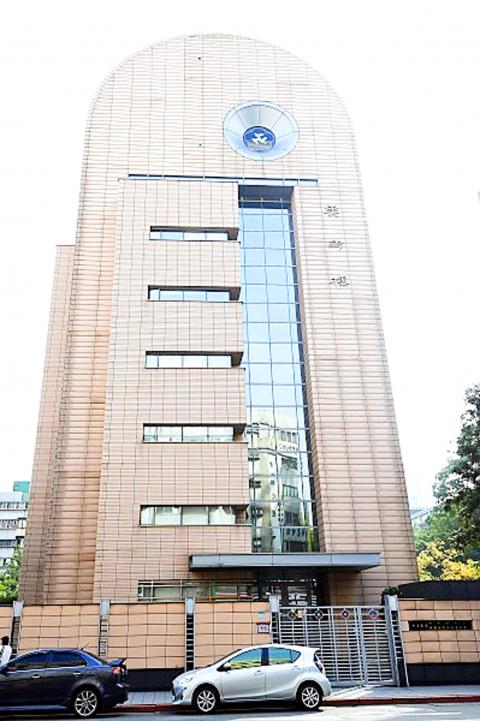The National Women’s League (NWL) collected billions of New Taiwan dollars in military taxes and surcharges from 1955 to 1989, with the sum estimated to be worth nearly NT$350 billion (US$11.5 billion at the current exchange rate) in today’s terms, the Ill-gotten Party Assets Settlement Committee said yesterday.
A major recipient of the so-called military taxes and surcharges — eight different types of taxes, electricity bills and import duties — the league collected an estimated NT$24.03 billion during that period, which, factoring in inflation and interest, would be equivalent to NT$349.81 billion today, committee spokeswoman Shih Chin-fang (施錦芳) said.
The estimates were based on financial records kept by the Friends of Armed Forces Association, another recipient of the military taxes and surcharges that shared the tax revenue with the league.

Photo: Chen Chih-chu, Taipei Times
According to association data, the league was entitled to two-thirds of the tax revenue — excluding the amounts given to the General Chamber of Commerce, the Chinese National Federation of Industries, and importer and exporter organizations at local levels — while the association received the remaining third.
From 1955 to 1989 when the taxes and surcharges were levied, estimated tax revenue totaled NT$95.62 billion, which would be equivalent to NT$1.39 trillion today.
Shih said the tax revenue is an estimated value because the military taxes and surcharges were special duties collected by banks and business organizations, and never went into state coffers.
“Although the league has only provided partial records without detailed financial reports, data kept by the association are fairly complete, so the estimate should be reasonably accurate,” she said.
The league said it had used the money to organize entertainment events and build housing for military personnel and their dependents.
The committee is seeking to verify the league’s claim and how much was spent on housing.
It is to hold a hearing on Thursday next week as part of its investigation into the links between the league and the Chinese Nationalist Party (KMT).
The KMT decided how the tax revenue should be shared between the league and the association, and the party was responsible for including the league’s funding in government budgets.
“The league received all its government subsidies via the KMT. A property on Linsen S Road [in Taipei’s Zhongzheng District (中正)] was first acquired by the KMT and then donated to the league,” Shih said.
“The [financial] links between the league and the KMT should be convincing evidence to prove their affiliation,” Shih said.
The league has NT$38 billion in assets, mostly in cash, and relies on interest and stock dividends for income, she added.
Should the league be determined to be a KMT affiliate and operated using ill-gotten party assets, the league would be asked to return its assets to the state.

INVESTIGATION: The case is the latest instance of a DPP figure being implicated in an espionage network accused of allegedly leaking information to Chinese intelligence Democratic Progressive Party (DPP) member Ho Jen-chieh (何仁傑) was detained and held incommunicado yesterday on suspicion of spying for China during his tenure as assistant to then-minister of foreign affairs Joseph Wu (吳釗燮). The Taipei District Prosecutors’ Office said Ho was implicated during its investigation into alleged spying activities by former Presidential Office consultant Wu Shang-yu (吳尚雨). Prosecutors said there is reason to believe Ho breached the National Security Act (國家安全法) by leaking classified Ministry of Foreign Affairs information to Chinese intelligence. Following interrogation, prosecutors petitioned the Taipei District Court to detain Ho, citing concerns over potential collusion or tampering of evidence. The

‘FORM OF PROTEST’: The German Institute Taipei said it was ‘shocked’ to see Nazi symbolism used in connection with political aims as it condemned the incident Sung Chien-liang (宋建樑), who led efforts to recall Democratic Progressive Party (DPP) Legislator Lee Kun-cheng (李坤城), was released on bail of NT$80,000 yesterday amid an outcry over a Nazi armband he wore to questioning the night before. Sung arrived at the New Taipei City District Prosecutors’ Office for questioning in a recall petition forgery case on Tuesday night wearing a red armband bearing a swastika, carrying a copy of Adolf Hitler’s Mein Kampf and giving a Nazi salute. Sung left the building at 1:15am without the armband and apparently covering the book with a coat. This is a serious international scandal and Chinese

Seventy percent of middle and elementary schools now conduct English classes entirely in English, the Ministry of Education said, as it encourages schools nationwide to adopt this practice Minister of Education (MOE) Cheng Ying-yao (鄭英耀) is scheduled to present a report on the government’s bilingual education policy to the Legislative Yuan’s Education and Culture Committee today. The report would outline strategies aimed at expanding access to education, reducing regional disparities and improving talent cultivation. Implementation of bilingual education policies has varied across local governments, occasionally drawing public criticism. For example, some schools have required teachers of non-English subjects to pass English proficiency

TRADE: The premier pledged safeguards on ‘Made in Taiwan’ labeling, anti-dumping measures and stricter export controls to strengthen its position in trade talks Products labeled “made in Taiwan” must be genuinely made in Taiwan, Premier Cho Jung-tai (卓榮泰) said yesterday, vowing to enforce strict safeguards against “origin laundering” and initiate anti-dumping investigations to prevent China dumping its products in Taiwan. Cho made the remarks in a discussion session with representatives from industries in Kaohsiung. In response to the US government’s recent announcement of “reciprocal” tariffs on its trading partners, President William Lai (賴清德) and Cho last week began a series of consultations with industry leaders nationwide to gather feedback and address concerns. Taiwanese and US officials held a videoconference on Friday evening to discuss the